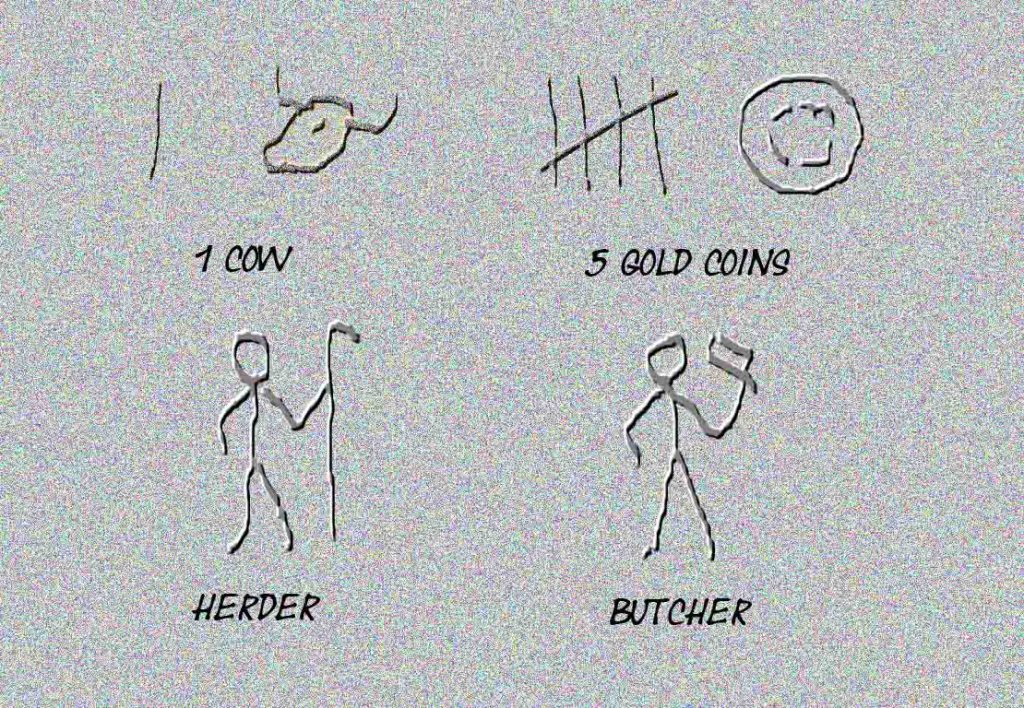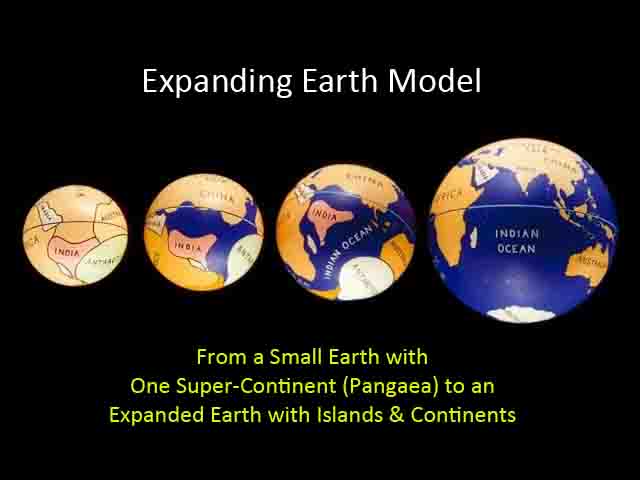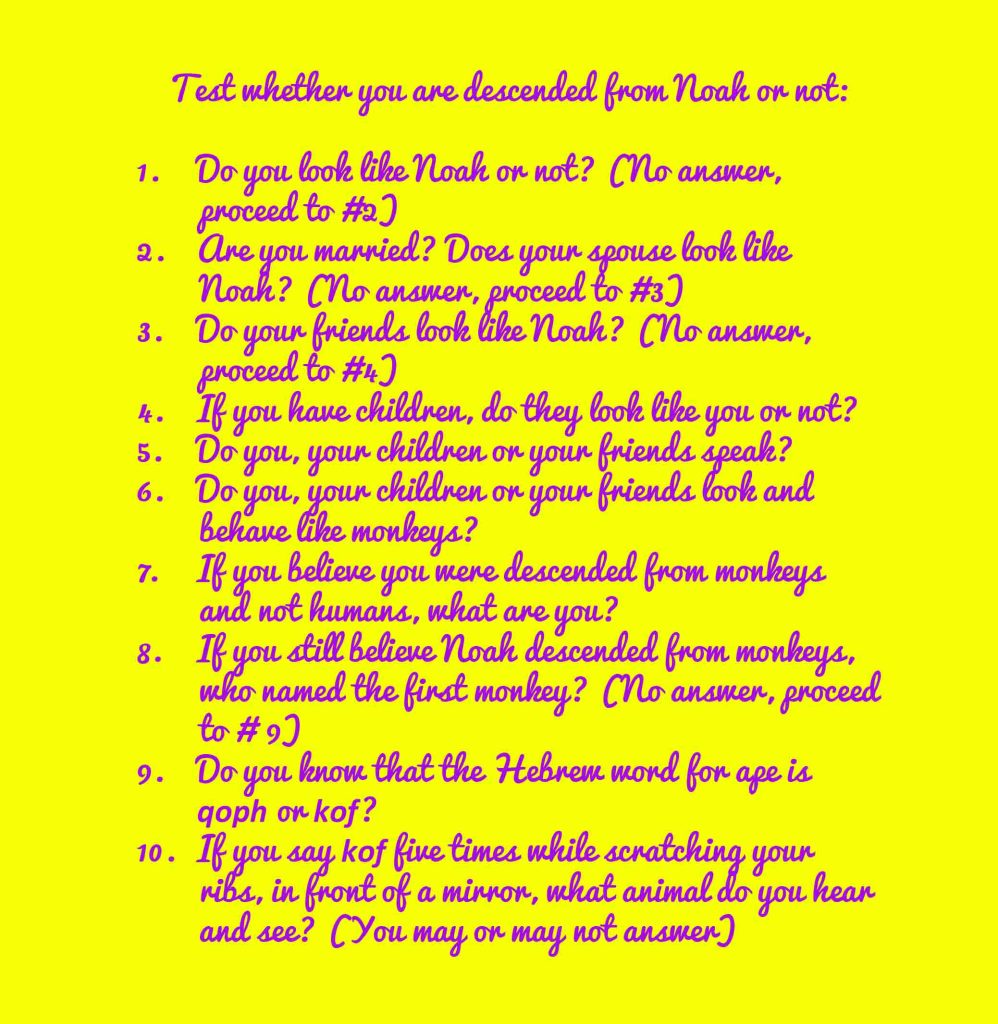52 Weeks in the Ark with Noah and Family (WEEK 8): Writing, Imagination and Revelation (Noah’s Ark Chronicles)
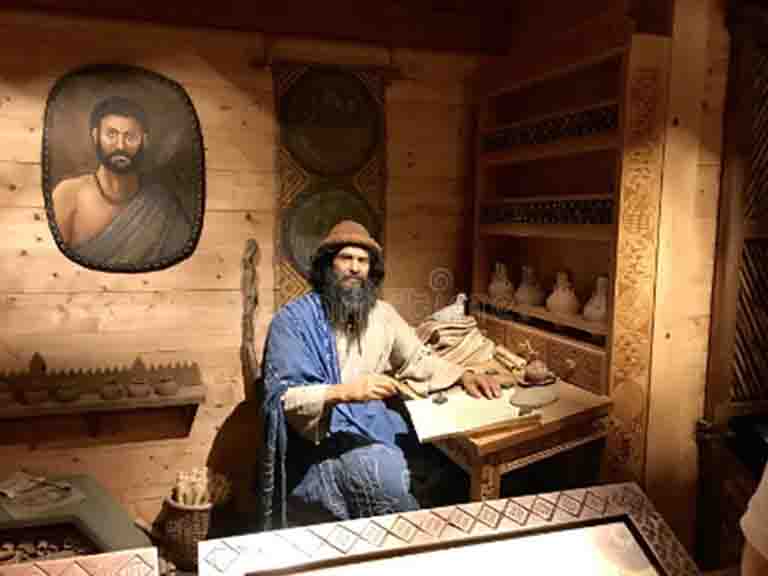
WEEK 8: 7th to 13th Day of Tammuz, the 4th Month of the Hebrew Religious Calendar
How Writing Developed
How did writing develop? Who first used words to name and describe specific objects, to record such information in some indelible form, and to pass on that record of the information for future use?
Words serve important basic functions. For instance: When two persons enter into a business deal, they use symbols to count the number of cows or sheep that will be sold or bought in the exchange as proof to others that ownership has been transferred. Using crude symbols for numbers, objects and their names, a Herder and Butcher can draw a contract on rock or metal, as below.
This crude illustration cannot show the complexity, depth and nuances that language and symbols can produce to record information of great importance and of long-lasting use, such as the names of people, great events in their lives, and how they could have influenced the course of history where they lived. Many think it took ages for humans to develop this level of human communication. But words are as innate, natural and integral to humans as their brains, their mouths and their tongues.
The first word ever spoken by any human could have been “Abba“, uttered by Adamah on his creation or birth day. And second could be his own name. Hence, we only need to point to Adamah and how Yah told him to give names to animals according to how he interacted with them in their habitats. Now, that presumes he would have to use words, even descriptive and distinct ones, that will differentiate one animal from the others. But did Adamah have the vocabulary? What do you think?
Why Humans Needed to Write and Keep Records
Would Yah command Adamah to do something without giving the tools first? How did Adamah learn language in the first place? We would have to say he learned it from Yah, through a process of learning similar to how we learn at home and in school. Or he could have learned it miraculously. For right after he and his wife were made, it seems Yah talked to them and gave them instructions about how to live in Paradise. Lessons on obedience, doing right and avoiding wrong were imparted and expected to be followed. Consequences, grave ones, were also expressed and implanted in their minds and consciences in order to protect them from disobeying and from harm.
And there were tasks given, the shared job of taking care of the Garden and taking care of the animals, perhaps, interacting with them on a first-name basis, for it seems animals knew then how to talk with humans. Unless the serpent was a special creature which alone knew how to talk to humans – and even tempt them. No, you give names to animals, not because they are mere pets you can call and expect to respond, but, more so, to interact and accomplish certain tasks needed in caring for the Garden.
Consider this scenario: When Adamah needed to explore new territories in his dominion, he needed a horse, an elephant or a dolphin to ride on and, maybe, even a giant bird to fly on. And also an eagle to direct his way and tell him what was beyond the horizon. And a lion-and-dog team would be handy to have around to keep some goats, sheep, and deer from wandering off their grazing lands or eating certain plants that were newly-planted by birds, chimpanzees and hogs working together as tillers and seed-sowers. And a gazelle could serve as a fast-running scout to check the densely-forested parts of the Garden for monkeys and squirrels to harvest fruits and berries for their common food and for planting elsewhere. Have we always thought of animals as being wild, destructive and unorganized packs for the sole purpose of reproducing and foraging? Yes, they serve unique and vital roles in preserving ecosystems in ways humans have not fully understood. Who taught them that? How? DNA and instincts come to mind. But these two divine gifts can only be of value if there is a way for animals to communicate with other creatures within the complex mechanisms of Creation – what many blandly call environment.
How much more for humans who have been assigned to become the masters of Creation? Imparting the Creator’s design and purposes had to begin with humans through words. Adamah could have already established a well-functioning network of all of Nature’s parts to serve both humans and animals everywhere. Naming and teaching animals were the very first steps. Yah gave names to man and woman and then gave them work to do. Adamah also did that to animals. Adamah and Havah were not spoiled, idle fruit-pickers in the Garden of Eden. Neither were animals uncoordinated creatures of the wild.
Why Do We Still Give Names to Animals?
How would you name an elephant differently, given your vocabulary now? It might be hard to do. But if you could talk to an elephant, it might not be too hard. You might call a dog “Ruff” today. The Adamaic or Aramaic word for dog is kalba (in Hebrew, kelev), which may have come from yelp. That is literally like naming a person based on the sound of his laughter or groan. Perhaps, Adamah had yet to learn to be more creative and was still learning to expand his vocabulary through talking with animals. It required making friends and bonding with them and treating them not as lower creatures but as fellow partakers of Creation. They may not have been blessed with Elohim’s image; but they had a level of life and awareness that allowed them to interact intelligibly with humans. Did Noah have to invent new names for his animals; or did he already have a list handed down by Adamah through his grandparents? Perhaps, he did not converse with them; but they certainly obeyed Noah for they had listened to Yah’s call to enter the Ark and to behave well. The Ark pictures the perfect and pristine environment Adamah had managed to build but within a crisis situation. And the whole purpose was to rebuild and restore what Eden had been.
Today, many may deal with animals as if they were also equal to humans, or even more than humans. But after the Fall, that may not be wise at all. What happened to animals and what they have become today is not so clearly appreciated by many. This fact is one of the issues we will deal with in future discussions. We merely introduce it here to highlight the value of language in the development and the history of Creation. And there is no other context within which we can deal with it better than within the story of Noah and the Flood.
Adamah and Some of the First Words He Coined
Adamah was then the first practical writer and user of words. How he preserved the names of animals we are not told. Perhaps, he needed not to as he and Havah had perfect memories. Or perhaps, they knew how to write as much as they knew how to use words. Who taught them? Well, it should be obvious by now. Who told Moses what to write when he wrote the story of Creation? Yahuah? Or did the angels write chronicles of all that Yah had made at the very start? That could be true as well. Angels do have golden chronicles that they showed to Enoch. Or did Adamah write all that he was told to do in the Garden? But what did he write it on? Stones, wood or paper?
It is immaterial. Language was spoken. Words were made and collected. Information was recorded for the use of everyone else who would become part of Creation, from humans to animals. A whale would give birth to many more whales who would all be named after the first pair of whales. Whalen, Jr. and Whaleah Ben-Whaliams had brothers and sisters, and eventually nephews and nieces who had different names. We complain about having to learn taxonomy in Biology; but Adamah may have started it all and left a written record to keep track of all his wards.
Is this some kind of a contrived fairy tale to make sense of a “myth” that has no scientific validity? How do we prove Adamah really did what we illustrate here with fictional names? Well, who do you think named the serpent? Was there any other animal named in Genesis 1-3? In Gen 1:21, Yah created the serpent, dragon or sea monster (tannin in Hebrew), which could mean a generic kind or species of sea creatures. But Adamah used the word “nahas” or “nachash” to mean a land serpent or snake, the one that tempted Havah. It is a specific kind of animal that is described extensively in Gen. 3:1-15. First, it is described as being “arum”, that is, more shrewd or crafty than any of the “beasts Yah had made”. Does this mean Yah made it more crafty or cunning; or was it simply capable of being more resourceful by its own devices? Like a robot that becomes sentient?
A dog or a bear can be shrewd as well in its own ways in order to eat and survive, as they are today. Perhaps, in the Garden, being vegetarian, they probably needed only to be diligent to find berries, mushrooms and sweet herbs to feed themselves. Or they could bargain with other animals to share food with them, such as a pigeon which could drop some corn to them. Perhaps, Adamah recognized this subtleness or craftiness of the serpent from the start and named it so. The very sound of the word “nacash” (with the letter c pronounced with a throaty ha) mirrors the character of the serpent. In that sense, Adamah was not a mere wordsmith but a prophet as well. (The Tagalog word for snake is “ahas“, which is often used and spoken with contempt to describe a wicked person; and it sounds almost like its Hebrew counterpart.)
A snake, at first, must not have slithered but crawled like a multi-legged dragon and interacted early on with Satan and became his agent for his selfish schemes. Adamah may have found the serpent in that state already and may have failed to warn Havah about it. Did the serpent think it stood to gain from Satan some concessions by using the Tree of the Knowledge of Good and Evil to entice woman? So, was the serpent indwelt by the spirit of Satan by consent? It was more cunning because, as animals which had been given names, certain honor befitting them, and an “animalhood” (a form of destiny) beyond the level we know them to have, it decided to connive with Satan to have more than what it had that other animals also had. That is, like Satan who wanted to be more than just a mere angel, the serpent wanted to be more than just an animal. And getting woman to be more than being human but to be a god as well (which she already was in reality being in the image of Yah) was the evil duo’s plan to upset Creation and take over it. It is no wonder that many today warn us against a nefarious serpentine race at work among us and even ruling over us. Not surprising, since Yahusha called and condemned the Pharisees as a “brood of vipers“. (Matt. 12:24-34)
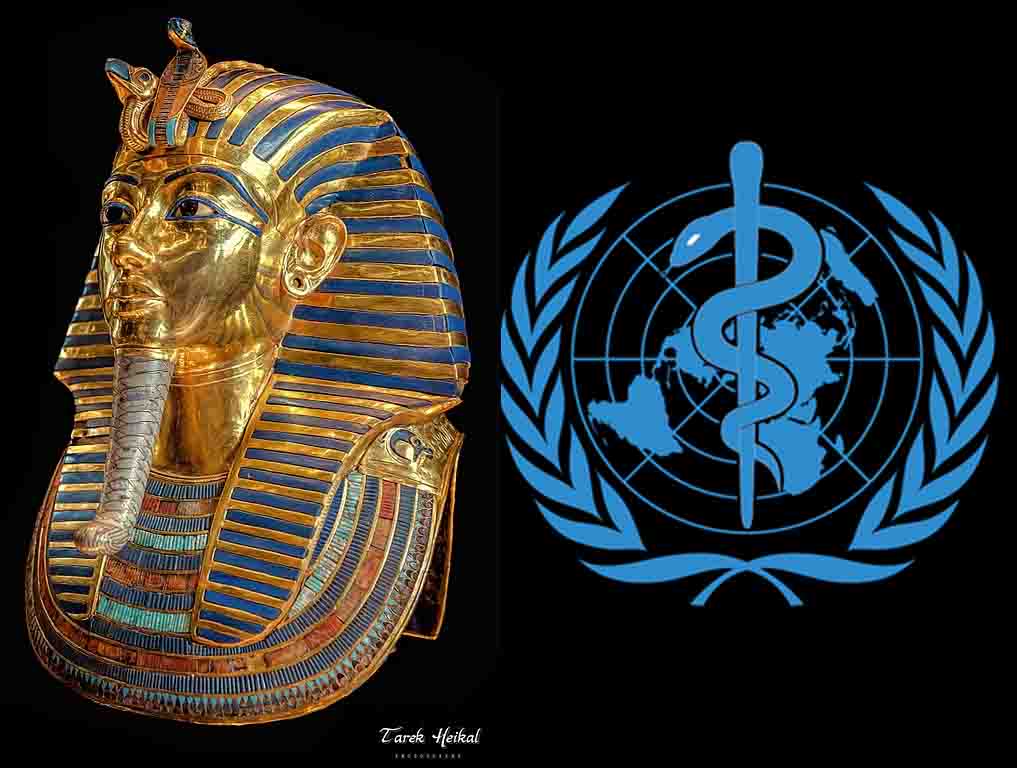
What we give to or what we do to animals today has significance as to what we want to do with ourselves as well. Noah took care of the clean and unclean animal. The Fall of humans came with the fall of animals as well. Humans died and animals died. In fact, animals had to be sacrificed to appease Yah. But Satan sacrifices humans to appease his hatred and anger against righteous humans and angels. And by the time of Noah, the serpent had lost its legs. It slithered on the ground, a curse for its rebellion. The descendants of the first serpent had become enemies of humans. The snakes today may not deserve it at all because they are dumb although still deadly; but the damage had been done. The real and spiritual Serpent deceives and destroys through words as he did before. He speaks and lurks in dark places. He is the dragon and serpent that will arise from the abyss where Yah had imprisoned him. And, as before, he still works with cunning humans and animals — through his many demons — to pursue his goal to destroy Creation.
Enoch and Noah’s Styles of Writing
By the time Enoch was born, writing had become a sophisticated skill humans had mastered to use. And it served to reveal hidden secrets previously hidden from humans, and most especially of all, the unseen world of angels and the momentous events that would take place way into the far and final future days. Hence, when we read Enoch, we can see what words he used, and what his habits and his writing style were. Likewise, we can see the writing habits of Noah.
Here are samplings from Enoch’s and Noah’s writings:
Enoch writing:
The words of the blessing of Enoch where-with he blessed the chosen and just, who will exist on the day of tribulation when all the wicked and impious shall be removed.
And then answered and spoke Enoch, a just man, whose eyes were opened by God so that he saw a holy vision in the heavens, which the angels showed to me, and from them I heard everything, and I knew what I saw, but not for this generation, but for the far-off generations which are to come. (1 Enoch 1:1-2)
Noah writing:
And in those days Noah saw the earth that it was curved, and that its destruction was near. And he lifted up his feet from there, and went to the ends of the earth, and called to his grandfather Enoch; and Noah said with a bitter voice: “Hear me! Hear me! hear me!” three times. And he said to him: “Tell me what is it that has been done on the earth, that the earth is so tired out and shaken? May I not be destroyed with it!” And after this time there was a great trembling on the earth, and a voice was heard from heaven, and I fell on my face. And Enoch, my grandfather, came and stood by me and said to me: “Why dost thou so bitterly and lamentingly cry to me? A command has come from before the presence of the Lord over all those who dwell on the earth, that their end is at hand, because they know all the secrets of the angels, and all the violence of the satans, and all the powers of secrecy, and all the powers of those who practice sorcery and the powers of fascination, and the powers of those who make metal images of the whole earth; and also how silver is produced from the dust of the earth, and how soft metal originates on the earth.
For lead and zinc are not produced like the former; a fountain it is which produces them, and an angel who stands in it; and that angel is excellent.” And after that my grandfather Enoch took hold of me with his hand, and raised me up, and said to me: “Go, for I have asked the Lord of the spirits concerning this shaking of the earth. And he said to me: ‘On account of their injustice their judgment is completed; and will not be counted before me concerning the months which they have searched out, and through which they have learned that the earth will be destroyed and those who live thereon. (1 Enoch 65:1-10)
Both Enoch and Noah begin writing by referring to themselves in the third person by their names as a way of introducing the narrator, then shifting to the first person (I). They both see visions from Heaven, although in Noah’s case, he sees Enoch, who had been translated to Heaven previously. They both receive messages of future things to come and about the judgment that will fall upon wicked beings. If we read further into their accounts, we see facts difficult to understand and accept that have not been widely taught or even mentioned in mainstream circles among churches and the academe. In fact, the book itself has been marked as unfit for reading, undependable literature, and, for sometime, even outlawed material.
Are these products of wild imaginations by uninspired writers? And why would the apostles and disciples quote this book, along with Yahusha? Are we prone to doing the same wild thinking and unscrupulous imaginations that have no solid basis in the revealed text? Some, in fact, have said that my articles are products of a “fertile imagination”, making it appear as if they were not factual or fact-based reconstructions of events which we know are not fully dramatized or illustrated in scriptures. Should one then write only the names of people we read and only the words they spoke and not include how they must have felt or behaved based on the circumstances of the narrative? Should we avoid using knowledge we have learned from Nature, from history and from our experiences that may validated or explain events in the past? Should we then not use any imagination at all and just proclaim revelation verbatim without resorting to viable or probable causes and effects of revealed truths?
Pauls’ Writing: Pure Revelation and No Imagination?
Did not Paul, a learned Jewish-Roman Pharisee, delve into deep, intellectual and spiritual discussions about faith, salvation and resurrection, which led Peter to warn others from twisting for their lack of understanding where Paul was coming from? (2 Peter 3:16) And was not Paul accused by unbelievers of going insane for his “much learning” even though what he knew was a common belief among the mass of believers? (Acts 26:4-27) We must use a certain amount of imagination or creativity that will make revelation become more real, alive and appealing before all, believers and unbelievers. Revealing or shedding light upon the cloudy or shady areas of the Word using the expanding amount of new knowledge Heaven itself grants us today that further supports and validates the story of Noah and the Flood will help many to strengthen their faith in Yah and His Word. Whether through archeology, scholarly research or inspired introspection, Ruach seeks to transform us to higher glory through enhancing our knowledge, our talents and our spirituality.
Taking Time Out to Imagine What the Ark Really Signifies
On the 8th week of the Ark’s journey and while the pouring rain and the flowing waters from the deep had stopped and given Noah some respite from the horrific chaos they heard outside, we also take a while to meditate and address some notions that may arise in the minds of the readers.
We wish to clarify that we are not presenting a sci-fi reimagining of Noah’s biblical account. Meaning, we are less concerned with applying the imagination to present how people may have reacted to what happened during the Flood than with showing revealed truth to illustrate what may have happened to the Earth, based on both the biblical narrative and scientific findings that are consistent with the text. Hence, we are not out to prove the narrative through science but that the narrative is true and accurate in all its aspects but that how things happened can be explained through principles of many fields of knowledge, not just science. And even the imagined behavior or thoughts of the characters involved are fully based on human experiences and actuations in certain circumstances, not just in recent recorded history but also in the ancient scriptures.
As such, when we say Noah and his family must have prayed and kept quiet times during the first week the rain started and were not spending their time drinking and partying, that is because that is how majority of people would behave during crisis situations. We do not know how they devoted themselves to Yah or how they worshipped Him then. Certainly, they must not have sacrificed animals inside the Ark. It would have been dangerous and unlikely to burn an animal inside a dark and enclosed vessel that barely allowed people to breathe fresh air.
Did they sing hymns or read Enoch’s book to study Yah’s revelation? Perhaps. Not a likely book for devotion or inspirational reading; but how do we know? Even the Book of Revelation can serve to encourage us during these difficult times. They probably did not even write hymns of praise yet, perhaps only instrumental playing and a little dancing for fun or fellowship. During the global lockdown, as we said, many people entertained themselves at home and even others through singing and other activities over the internet. But, remember: During the first few weeks of curfew, most towns and cities were like ghost places. We are not so unlike Noah and his family, without a doubt.
We heard of millions dying during the lockdown. Noah knew all the rest of humanity died. Who did the killing in both circumstances? Or, if you are not a conspiracy theorist, why did millions die? But did you know more died even before the lockdown for the same reasons? Plagues and disasters are just two of the many scourges upon the world in these renewed “Noah’s days”. Whether you believe that disasters, famine, war and others will come or not, the time to heed Yahusha’s warning that these times — that are like “Noah’s days” — has come. Wake up!
We could leave out speculative narratives from this chronicle we present; however, that would not lead us to consider how we must have behaved or thought if we were the ones inside the Ark and knew what was happening outside. The reason we include such possible scenarios is to highlight the validity and the acceptability of the facts we present based on our own human sensibilities and intelligence. We may not be 100% accurate in all the scientific proofs we present; but we know revelation is 100% true and that given all known and acceptable principles within our collective store of knowledge, what we know so far can form a viable and integrated picture of what happened in the past.
Yah did not leave us in the dark to guess what He did in creating the Universe. It was and it still is His responsibility to do that. And who can be more faithful than Yah in regard to fulfilling responsibilities? The attitude of many believers is to leave out the “secret things of Yah”. What are those secret things exactly? Things we do not understand or things we do not know or things not given to us at all? What is given to us to know but which we do not understand are not secret things. Ignorance is our fault, not Yah’s. On the other hand, things we do not know are not necessarily secret or meant to be secret forever. As we said, we would have no cellphones or airplanes today if the knowledge to make them were not discovered. That knowledge is not secret things of Yah but secret things of Nature discoverable through study and experimentation. Also, sealed prophecies will be revealed in Yah’s own time. Lastly, things not given to us and not meant to be known or understood — those are secret things.
And there are two kinds of secret things. Those things which are good but not for humans to know because they would become too proud or too powerful. Like how to walk on water or walk through walls. And even how to heal the blind or raise the dead. But does that mean all humans do not have such things? Perhaps, some have that gift or knowledge today and have remained humble and simple. They then deserve those powers by Yah’s grace. There is also knowledge about future events. Perhaps, it is given to some also. How do we know they speak the truth? Some claim their prophecies come true. Good for them. Praise Yah for giving those secrets and gifts to some people!
The gift to explain the secrets of Nature is also a gift of Yah. So much has been discovered through human research and investigation. Certainly, Yah meant all this knowledge to serve the welfare of humanity in accordance with His plan to redeem them from the corruption of the body and of the spirit. However, the knowledge He gave the ancient people was no less effective and efficient. Was Noah’s way to save his family and all animals any less remarkable than if a science-savvy, techie Noah had done it using modern technology? Moreover, the gift of explaining how biblical events may have occurred through modern knowledge is likewise a gift of Yah. With all our knowledge today, would it be so hard to find ways to explain how Noah could have made the Ark and be able to endure a year inside it with all his valuable passengers?

We address this issue, precisely, as a way to convince ourselves that our way of looking at things of the past may vary greatly and in different levels and perspectives. That is always expected, especially for a series that presents what many may consider “speculative premises”. We have two main goals for this series: First, to present a viable picture that may encourage believers to come up with a more solid and robust explanation of Noah’s story which we can, as a whole, accept and present to others. We should not allow the false “so-called science” to kidnap the truth just because we cannot present a more viable alternative to the conventional geological origins of the Earth. Prayers can be legally prohibited from school; but we must not allow truth itself to be displaced by false narratives and, in the process, remain untaught, if not rejected or mocked, in schools by default. How we see this series will determine whether we stand a fighting chance against the onslaught of lies in mainstream society or not.
The other form of forbidden knowledge refers to the dark secrets which fallen angels taught humans during the time of Enoch up to that of Noah. In general, this secret knowledge has remained either a secret to most people or kept hidden in plain view by the few practitioners. Demons began to proliferate during Noah’s time. We call them demons but they were Nephilim or the children of the fallen angels by women. How we wish we could say all that knowledge died with all those who died in the Flood. However, it did not. The fact that it exists today proves it without doubt. The second goal of this series is this: To give a warning to all, demons and humans, that Yah is giving us the chance to realize that the time for the use and proliferation of these secrets is coming to an end. Whether demons will accept that or not is no longer a question. But we write to reach out to as many as we can to consider this statement. As we said, Nature reveals many things that humans are free to study and make good use of, as Solomon – the first biologist, scientist, philosopher, proverb-collector, etc. – did. But the revealed word of Yah can also reveal so many more things than Nature can ever reveal or cause to be published in all the libraries of the world.
And we are only beginning the journey of Noah, reading through the text and searching out the compendium of human knowledge that may help us fathom the depths of Yah’s wisdom. Our speculative figure of at least 3,000 meters as the depth of the Great Flood is not some unsupported fact but a vetted biblical and scientific conclusion that is accepted by many other scholars. Just because it is not taught in seminaries, churches and colleges does not make it any less viable and compelling. Even the expansion of the Earth is, at least, a half-century-old theory that has not gained traction in mainstream educational systems because it debunks the foundation of the Theory of Evolution and the Plate Tectonics Theory: the slow, millions-of-years-long process of weathering, sedimentation and drifting of the continents, along with the development of living organisms supposedly fossilized and serving as record to the gradual ascendancy of the “human species”.
We know Evolution and Continental Drifting (as opposed to the idea of Continental Separation, as shown above) are unbiblical, as we have already shown. Noah is our champion and the nemesis of those of those who teach these ideas. Choose who has the better imagination: the person who accepts Evolution which says humans came from apes, using only fossilized bones as evidence, or the person who accepts the story of Noah, the great-grandson of Adamah 8 times over, who obeyed Yah by building the Ark and survived the Flood, and left as proofs of his having survived the Flood his writings, his own children, his grandchildren, which include all of us, including evolutionists. And before we forget, all the animals in the world.
Anyone who denies himself or herself as proof of Noah’s life and work is the most deceived person in the world. If monkeys, peacocks, lions, parrots, horses, salamanders and iguanas could talk, they would all tell the story of their ancestors which tells how they had survived by riding a huge Ark. But it takes a humble and really wise person or animal to know the revealed truth.
We end with this short quiz for the readers below.
